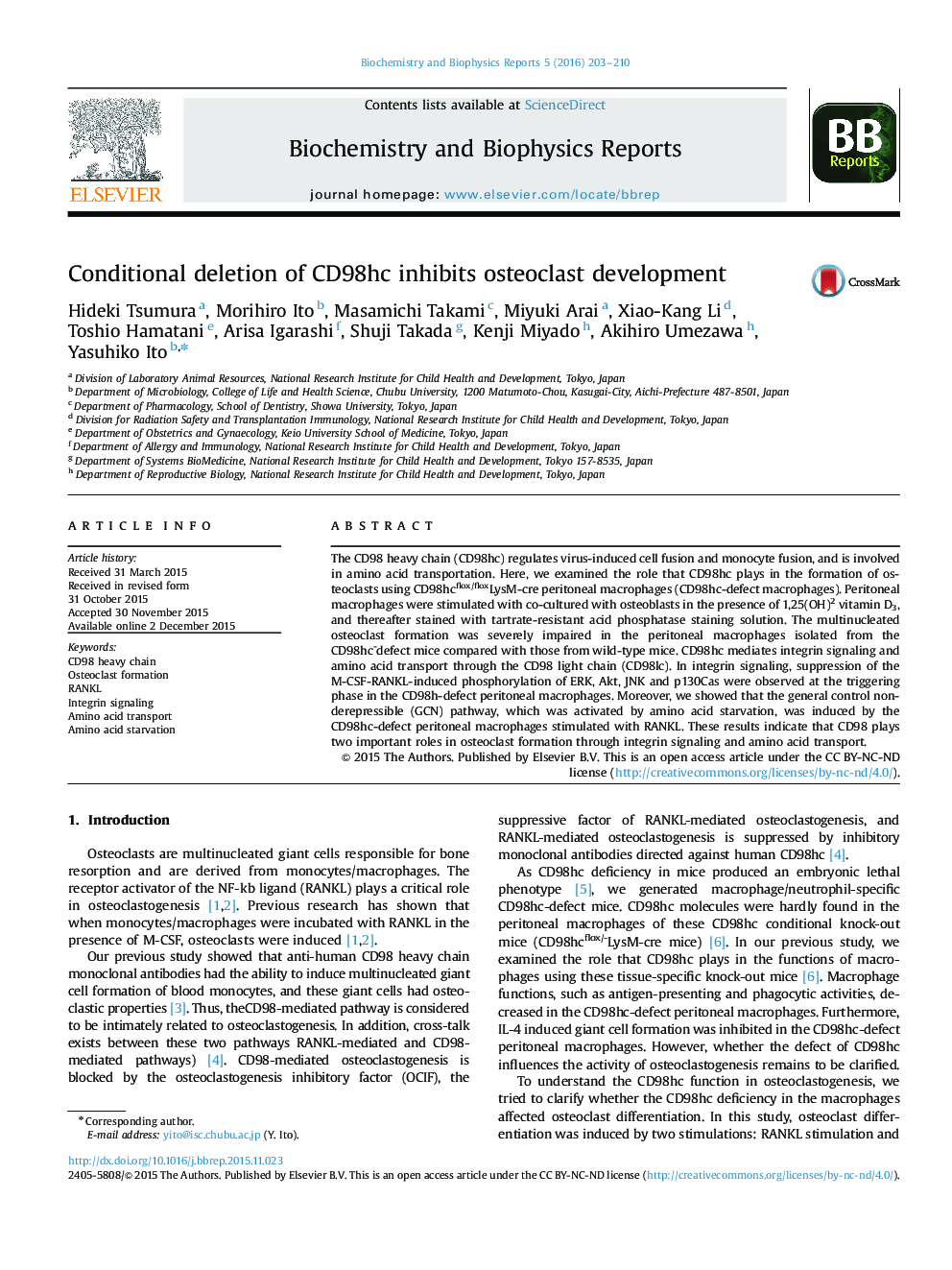| Article ID | Journal | Published Year | Pages | File Type |
|---|---|---|---|---|
| 1941722 | Biochemistry and Biophysics Reports | 2016 | 8 Pages |
•The osteoclastogenesis was severely impaired in the CD98hc-defect macrophages.•CD98hc-defect peritoneal macrophages fall into amino acid starvation, resulting in inducing the general control non-derepressible (GCN) pathway in the osteoclastogenesis.
The CD98 heavy chain (CD98hc) regulates virus-induced cell fusion and monocyte fusion, and is involved in amino acid transportation. Here, we examined the role that CD98hc plays in the formation of osteoclasts using CD98hcflox/floxLysM-cre peritoneal macrophages (CD98hc-defect macrophages). Peritoneal macrophages were stimulated with co-cultured with osteoblasts in the presence of 1,25(OH)2 vitamin D3, and thereafter stained with tartrate-resistant acid phosphatase staining solution. The multinucleated osteoclast formation was severely impaired in the peritoneal macrophages isolated from the CD98hc-defect mice compared with those from wild-type mice. CD98hc mediates integrin signaling and amino acid transport through the CD98 light chain (CD98lc). In integrin signaling, suppression of the M-CSF-RANKL-induced phosphorylation of ERK, Akt, JNK and p130Cas were observed at the triggering phase in the CD98h-defect peritoneal macrophages. Moreover, we showed that the general control non-derepressible (GCN) pathway, which was activated by amino acid starvation, was induced by the CD98hc-defect peritoneal macrophages stimulated with RANKL. These results indicate that CD98 plays two important roles in osteoclast formation through integrin signaling and amino acid transport.
